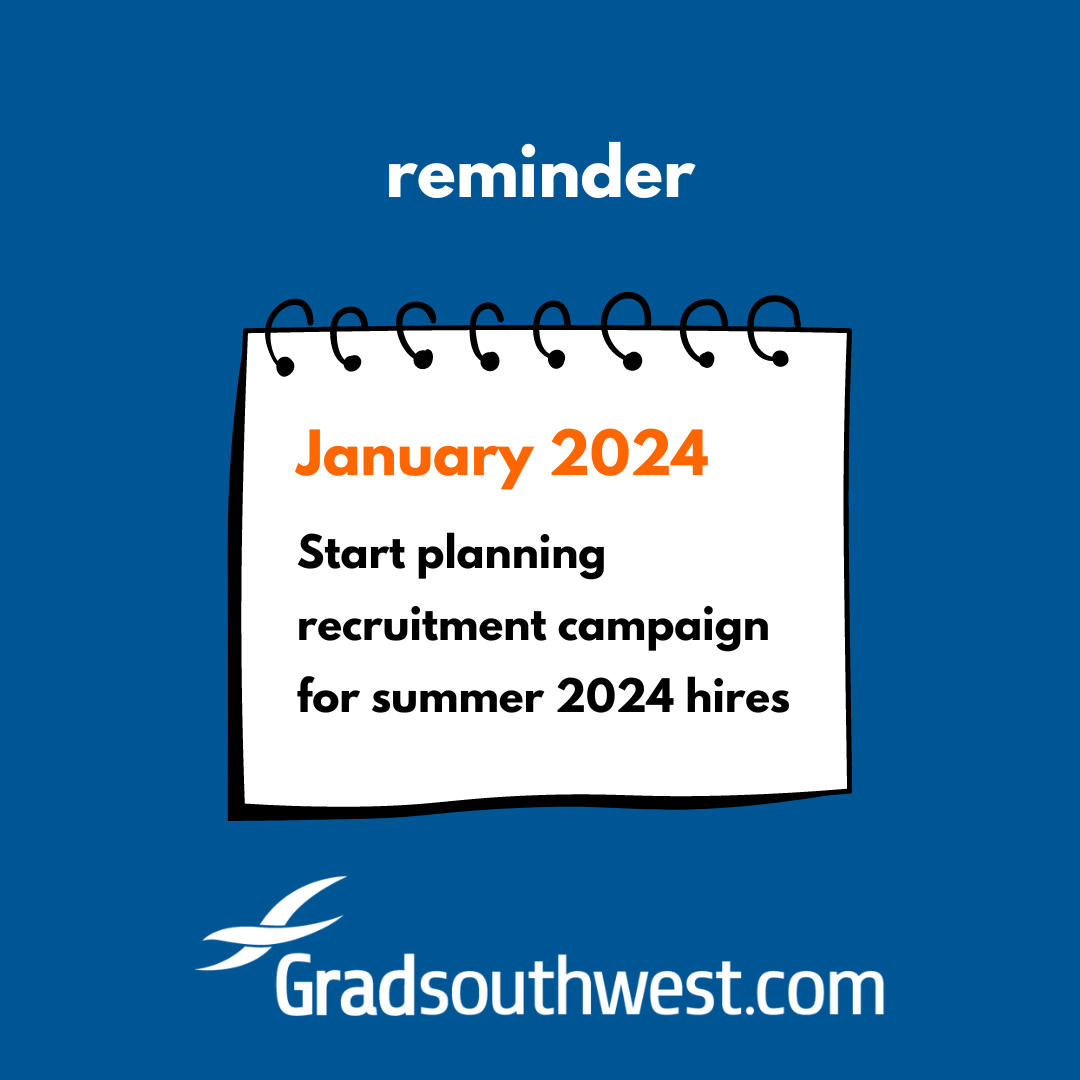Create a Recruitment Timetable
Posted on Tuesday, February 6, 2024 by Admin GradWales — No comments

We are often asked how long it takes to recruit by small companies that haven't hired externally before. And the students and graduates we speak to have no idea how long it takes. As a result we pulled together a rough timeline to give people an idea of the timescales involved.
Creating a recruitment timetable will depend on the specific needs and processes of your organisation. This timetable assumes a typical recruitment process for a single position. If you are hiring for multiple positions simultaneously or have a more complex recruitment process, you may need to adjust the timeline accordingly.
Recruitment Timetable:
Week 1-2: Pre-Recruitment Preparation
- Define the job role and responsibilities, including creating or updating the job description.
- Determine the hiring budget and get necessary approvals.
- Develop or update the recruitment strategy and plan.
Week 3-6: Advertising the Position
- Create job advertisements, including on-line job postings and internal announcements.
- Launch job advertisements on relevant job boards, your own company website, and social media platforms.
- Don't forget Gradsouthwest.com when you get to this step!
- We recommend advertising for 4 weeks - you want your candidates to have time to see your advert and apply. Short application windows limit numbers of applicants.
Week 7-8: Resume Screening and Initial Shortlisting
- Begin accepting applications.
- Screen resumes and applications to create a shortlist of qualified candidates.
Week 9-10: Initial Interviews
- Contact shortlisted candidates and schedule initial interviews. (You might put the interview date in the advert if you have it arranged in time.)
- Conduct initial interviews (telephone or video) with shortlisted candidates.
Week 11-12: Skills Assessment and Second Interviews
- Administer skills assessments or tests to candidates, if applicable.
- Conduct second interviews (in-person or via video) with the selected candidates.
Week 13-15: Reference Checks and Background Verification
- Run reference checks alongside offering the job to save time!
- Contact references provided by the candidates and perform background checks.
- Verify the information provided by candidates.
Week 13-15: Job Offer and Negotiation
- Extend job offers to selected candidate(s) - subject to references.
- Negotiate job offers, salary, and benefits with candidate(s).
Week 16-18: Onboarding and Documentation
- Collect required documents and paperwork from the new hire.
- Initiate the onboarding process, including orientation and training.
Week 19-20: Finalise Recruitment Process
- Complete all necessary paperwork and documentation.
- Send out rejection letters to unsuccessful candidates.
- Conduct a post-recruitment evaluation to identify areas for improvement.
Please note that this is a general guideline, and the actual timeline can vary depending on factors such as the complexity of the position, the number of candidates, and your organisation's specific procedures. Make sure to adapt this timetable to your needs and adjust it as necessary. Additionally, legal and regulatory requirements may vary by location, so be sure to comply with all relevant laws and regulations throughout the recruitment process too.
So if you are thinking of recruiting a student who graduates in the summer of 2024 then you need to be thinking at least 20 weeks ahead - that's an advert going live in February... which means you need to add your recruitment planning to your to do list for the New Year!